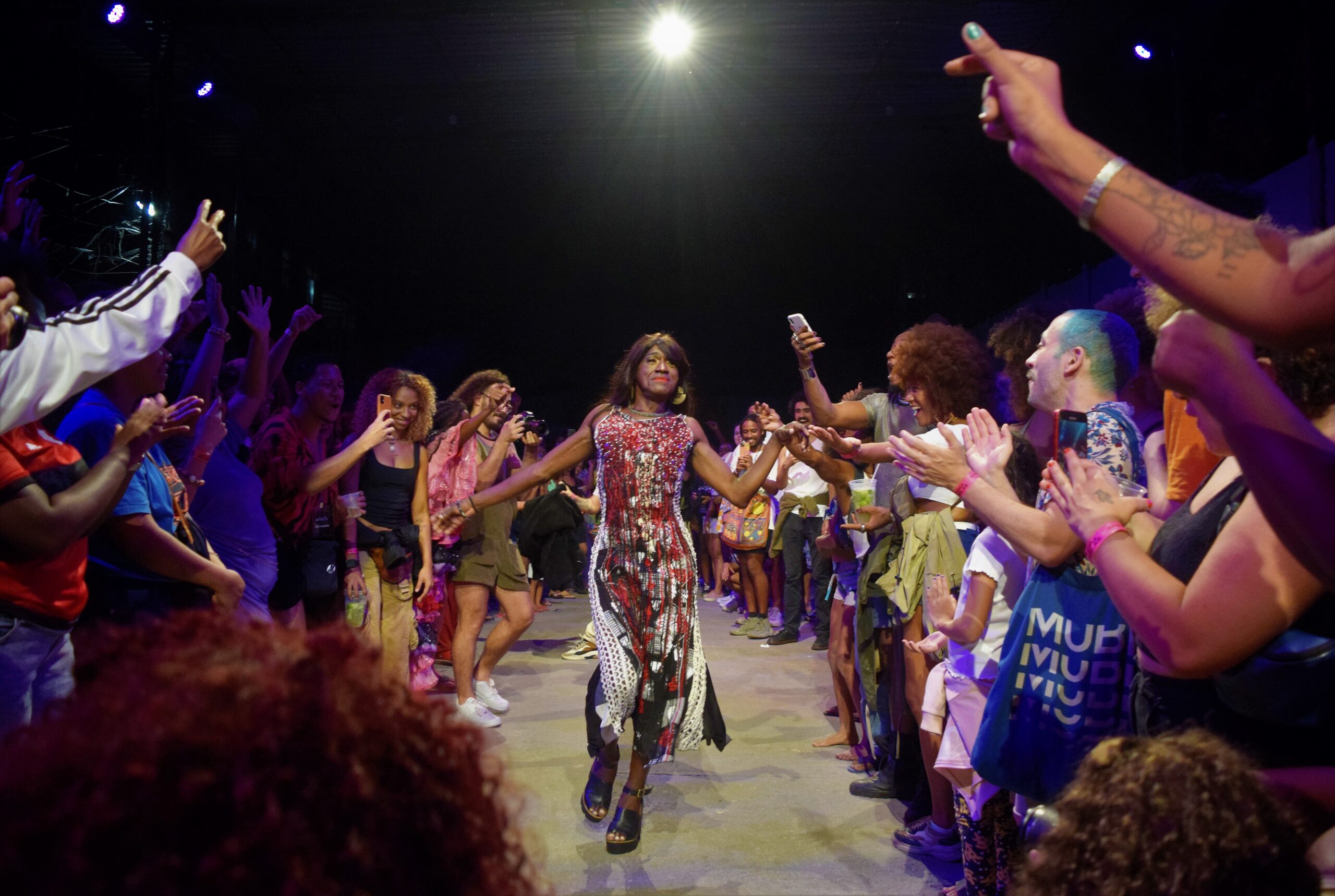

This is our latest article in a series created in partnership with the Behner Stiefel Center for Brazilian Studies at San Diego State University, to produce articles for the Digital Brazil Project on water issues and the LGBTQIAPN+ population in Rio’s favelas and in the Baixada Fluminense for RioOnWatch.
On June 4, the Noite das Estrelas (Night of the Stars) arts occupation was launched to celebrate the history and memory of LGBTQIAPN+ people in the favelas of Complexo da Maré in Rio de Janeiro’s North Zone. The occupation revives the historic Night of the Stars events of the 1980s when LGBTQIAPN+ Maré residents held shows and performances in the community. Produced by the Maré Entity project, the new Night of the Stars arts occupation celebrates and recovers memories from this period.
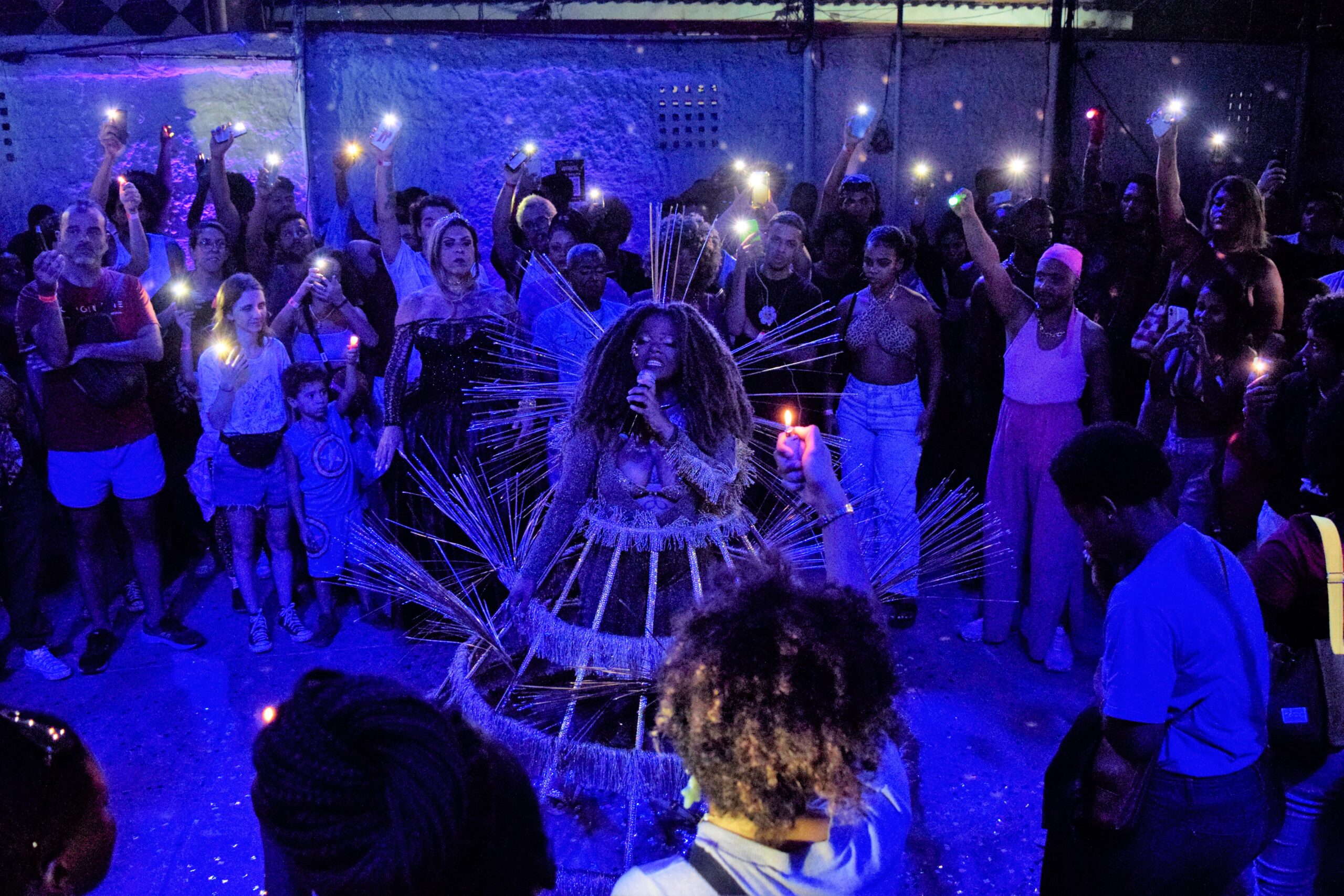
The Night of the Stars arts occupation has been held each Sunday since June 4 in the Nova Holanda community and will host its final performance this Sunday, July 9, with a three hour event, parading from Rua Teixeira Ribeiro to the Gato de Bonsuccesso samba school. Bringing together various art forms including theater, music, and performance, with a lot of creativity, the occupation offers an immersive experience of LGBTQIAPN+ imagination.
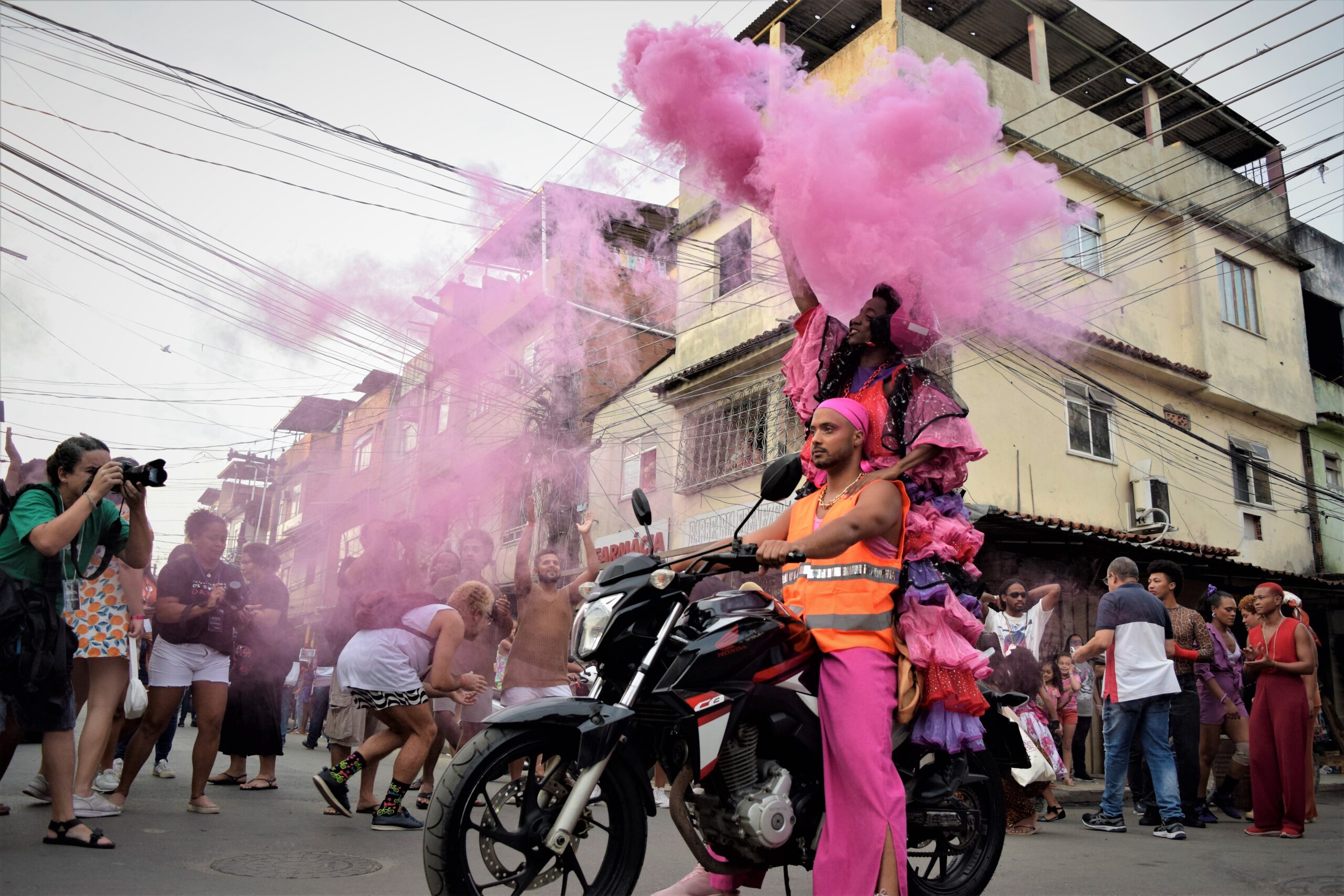
A theatrical performance titled Night of the Stars has been developed and is performed by Milu Almeida, Dominick Di Calafrio, Jaqueline Andrade, Marcela Soares, Lívia Laso, Preta Queenb Rull, with a ballet performance by Arthur Gabriel, Codazzi Idd, Lua Brainer, and Luiz Otávio. Past weeks’ events featured performances by guest artists including MC Natalhão, MC Caten, and Van Preta, legendary drag queen from the original parties, on the Sunday of Pride Week, June 25. The showcase also features members of the Maré Entity collective, formed in 2020 and responsible for hosting this event, a reference of Maré since the 1980s.
Marcela Soares, one of the original pioneers of the Night of the Stars party, shares her story.
“I feel honored because I started taking part as a teenager through friends at house parties. Then at street parties, there was an event in [the Maré favela of] Vila do João and I started there. These activities expanded to different parts of the community, the so-called Gay Shows. When the traditional [Brazilian] June festivals happened we went to all the communities here. It was so rewarding being on stage here in Maré. It makes you want to cry.” — Marcela Soares
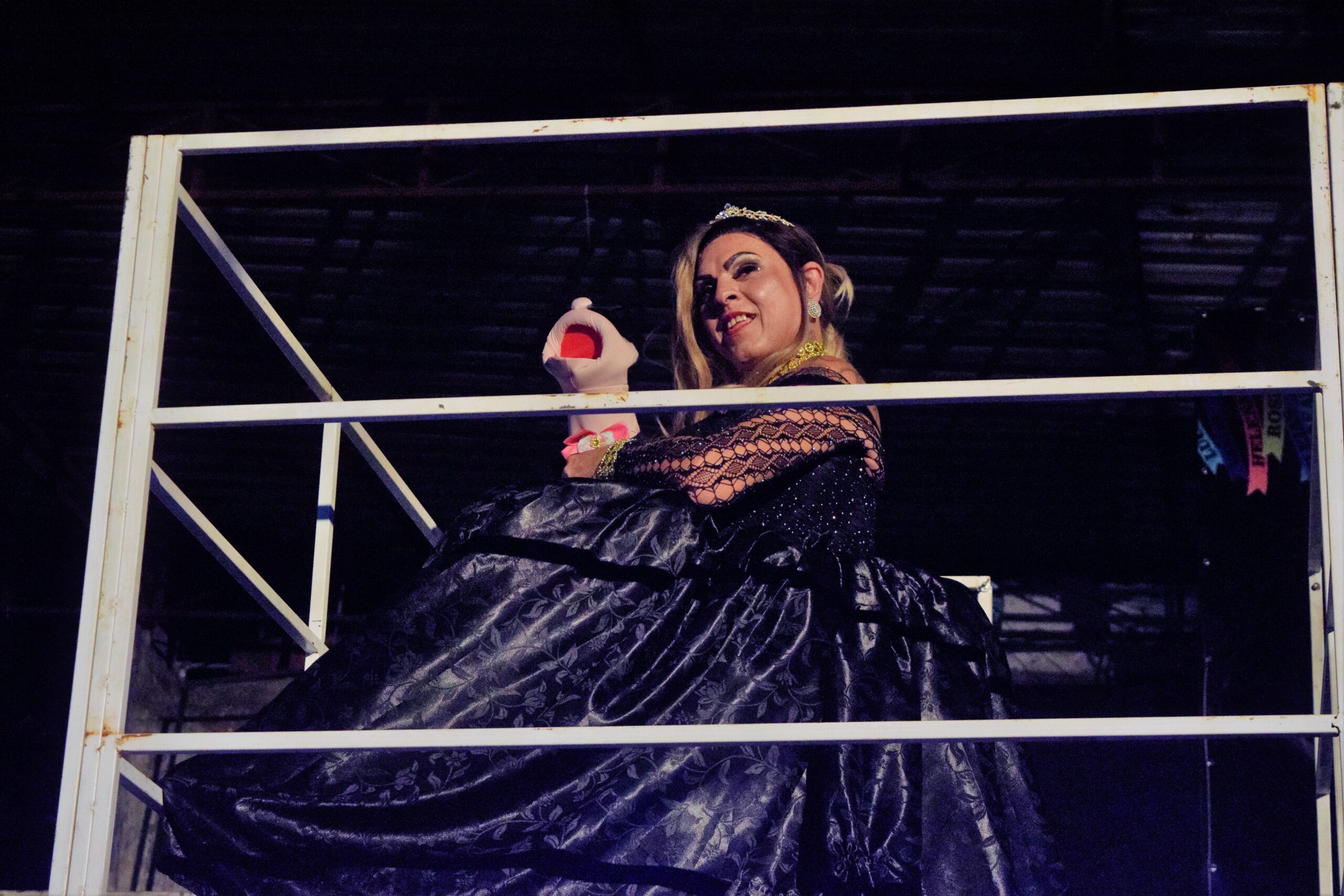
A new generation, such as trans artist Lua Brainer, shares the experience of being able to be part of this legacy.
“The event is defined in the history of older transgender residents and, as a transgender person currently in the Night of the Stars, I’m also part of this history and its continuation. There’s a [Portuguese rhyming] phrase, ‘if some day I turn into a star, as a drag queen I’ll return.’ Night of the Stars is a continuation, work done for and aimed at the trans bodies of Maré, mainly artists. I’m a continuation of the work done previously in the parades through the community. Later there’ll be a further continuation beyond me to another transgender woman in the favela. Each show is an innovation of crossing over, giving support, welcoming. It is a manifestation of the importance of continuation.” — Lua Brainer
As well as the performance on Sunday June 4, the occupation has held various activities throughout the month aimed at LGBTQIAPN+ audiences, such as a cultural production workshop with Bem Medeiros; the exhibition Night of the Stars an Eternal Galaxy at the Herbert Vianna Cultural Space with personal collections of the LGBTQIAPN+ scene; and the pioneering parties and film screening of Night of the Stars, shown at the Negro Zózimo Bulbul Film Festival and, in Maré, at the Maré Lesbian Resistance, Maré Trans Institute, and on Rua Sargento Silva Nunes, in partnership with Conexão G, Center for the Promotion of LGBTIAP+ Citizenship, Gilmara Cunha, and Redes da Maré.
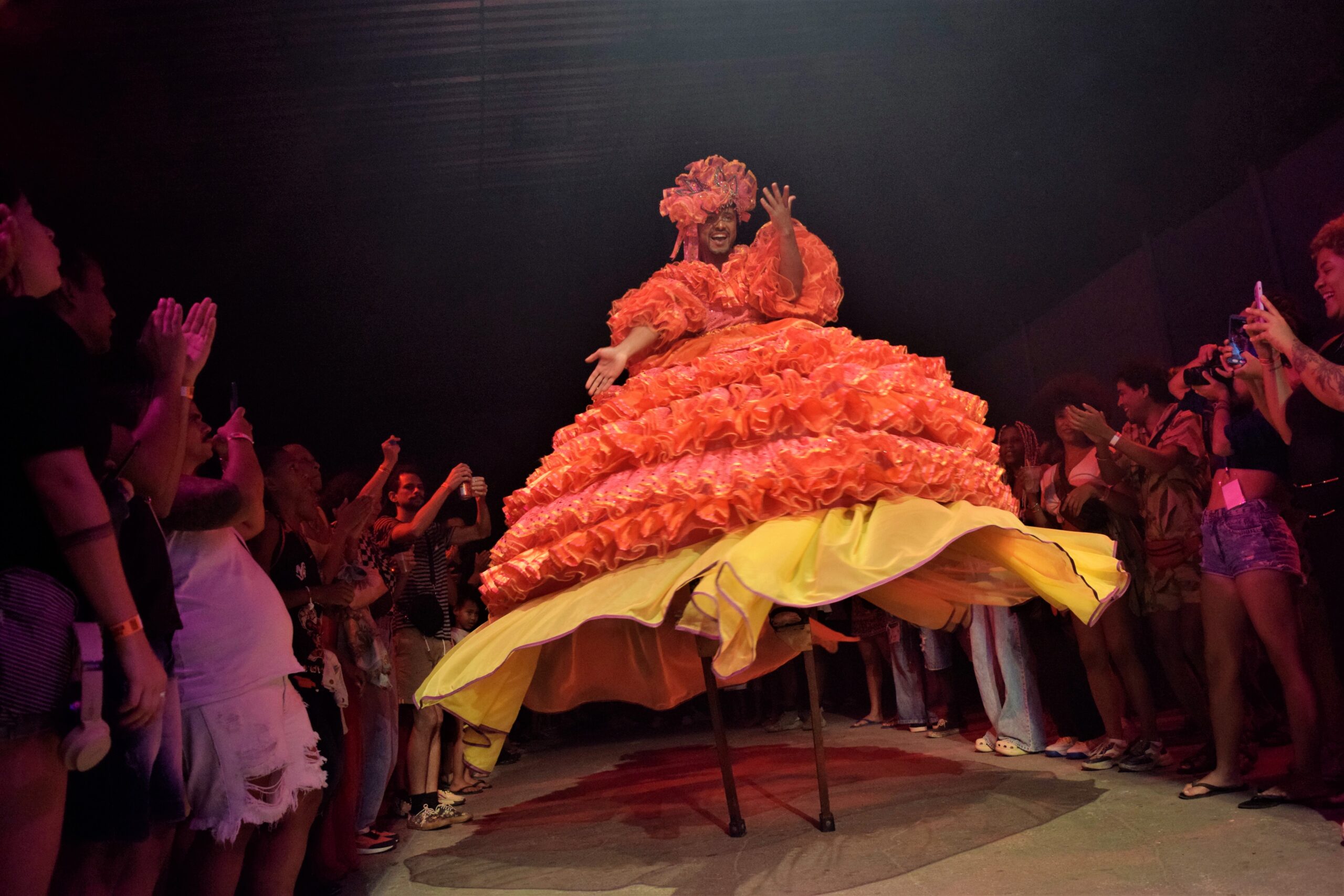
Created 20 years ago, Night of the Stars emerged during the June festival events organized by Nei, a deceased resident and organizer of traditional celebrations in Maré. Nei encouraged the creation of a space at his parties for his friends who made costumes. The initiative was later named Night of the Stars by the late Menga, a former resident of the Rubens Vaz community within Maré. Jaqueline Andrade, part of the collective and show, reports that the revival event has been well received.
“Those coming here who are from Maré experienced these shows. They have a really close connection. I saw these shows happening when I was a child, so it’s really important for me to be part of Night of the Stars, because I feel that it’s part of my body, it’s part of who I am, of who I am now. I’m here because these people made it happen. They were essential for my existence to be strengthened now. I’m very proud to be part of this project, a life project. It’s an honor to be with Marcela and Madame, see the shows again and be part of this.” — Jaqueline Andrade
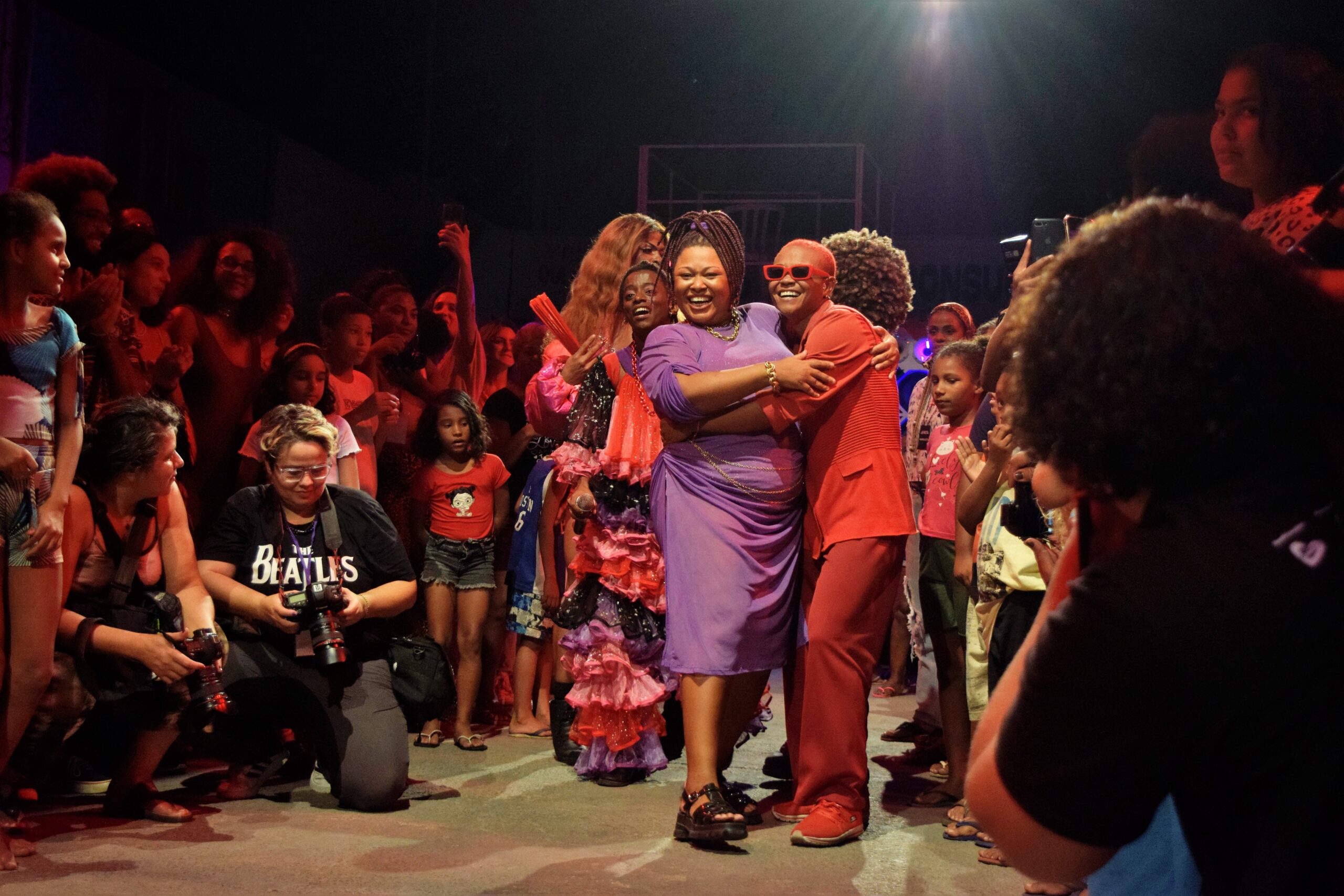
Paulo Lino, one of the show’s directors, talks about the group’s motivations.
“We want to debate which are the spaces we can be heard in. We always appear in the context of violence and we want to break with this because that’s not what makes us. We’re victims and at the same time are given the responsibility of dealing with this problem, these deaths. We want to reverse this situation and place LGBT people in the place they deserve, which is the place of art, production, and creativity. Night of the Stars really comes from this perspective of us celebrating our bodies. We want this project to run a lot, so it can be an inspiration to help put other LGBT people in spotlight.” — Paulo Lino
The debuting trans artist, Artur Azevedo, said that the project has exceeded his expectations.
“We hoped it would be a big project but we had no idea it would take on this magnitude. People have come from various places to see the show. There are always people who share their memories from when they took part in the past and get emotional because we’re reviving the initiative. This is my first ever show, so I’m really grateful.” — Arthur Azevedo
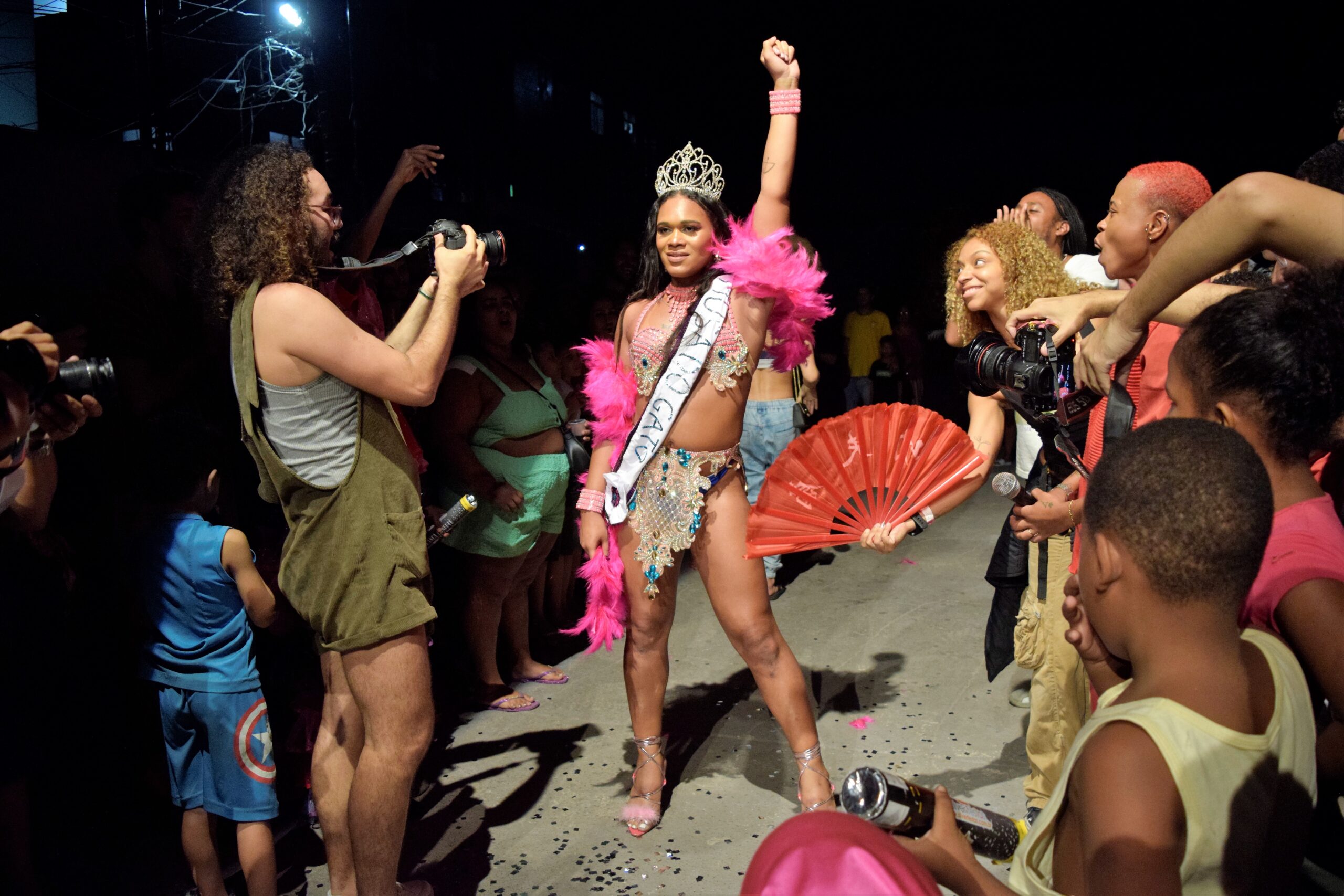
For Lua Brainer, the importance of holding the event is justified in the battle to overcome violent stigmas.
“Of all the letters in the acronym [LGBTQIAPN+], the T is the most vulnerable and occupies this space in the face of violence in a system which wants to kill, appropriate, and erase our bodies. All the letters are important, but unlike the others, I’ll only live to age 35 according to statistics. How do I transform the T into a powerful reference so that others can live and see themselves mirrored back? My body is experience. I want to live longer than 35, like all the others. My letter is a combination of history about us, about what it is to be a woman, about our bodies, continuation, and movement. Being in this favela and being trans creates a lot of new meaning. We ‘transition’ Maré. Being here is a way of showing other trans people that they can be a star too.” — Lua Brainer
The event is sponsored by Rio de Janeiro City Hall and the Municipal Culture Secretariat through the Rio Promotion Program (FOCA) and has support from Cia Marginal, Conexão G, LGBTI Citizenship Center, Gato de Bonsucesso, and Luminous Artifacts, and partners Redes da Maré, Itinerant Maré Space, and the Herbert Vianna Municipal Cultural Space.
Information about the Night of the Stars art occupation performance
- Final performance Sunday, July 9, 2023
- Rua Teixeira Ribeiro, Passarela 9, Avenida Brasil
- Performance starting location at the moto-taxi stand on Rua Teixeira Ribeiro
- Entrance: Free
- Time: 3:30pm
- Event scheduled for three hours
About the author: Amanda Baroni Lopes is a journalism student at Unicarioca and part of the 1st Journalism Laboratory of Maré community newspaper Maré de Notícias. She has two blogs: AhManda Notícias, where she covers all kinds of content, and Hip Hop Docs about breakdancing in Brazil. She is the author of the Anti-Harassment Guide on Breaking, a handbook that explains what is and isn’t harassment to the Hip Hop audience and provides guidance on what to do in these situations. Lopes is from Morro do Timbau and currently lives in Nova Holanda, both favelas within the larger Maré favela complex.
